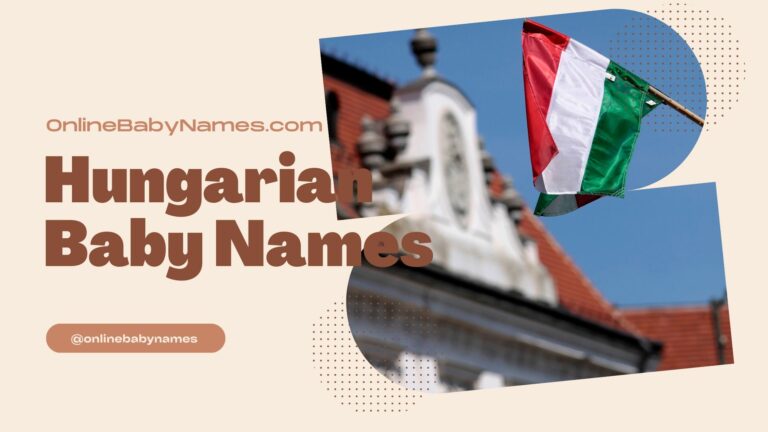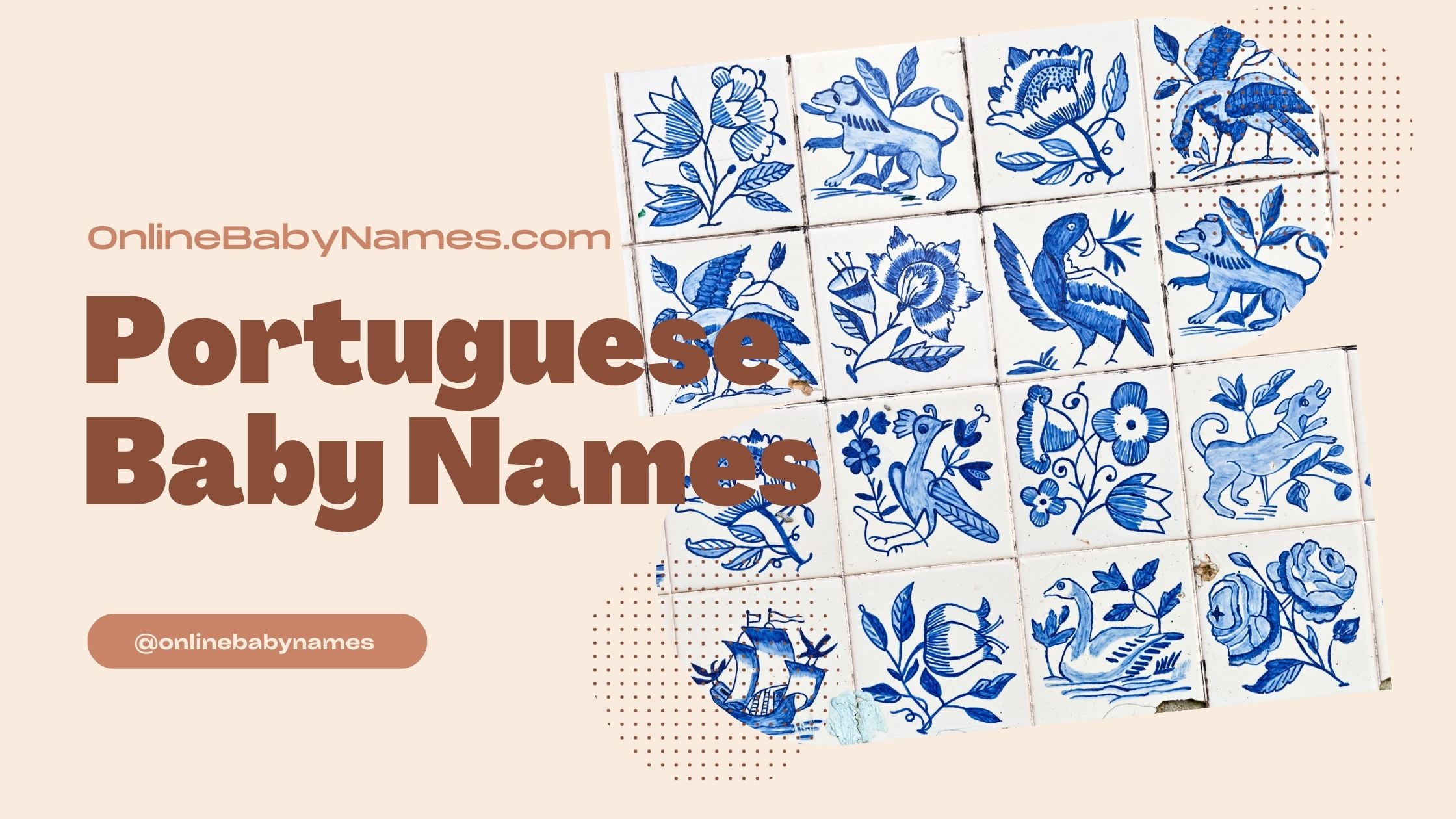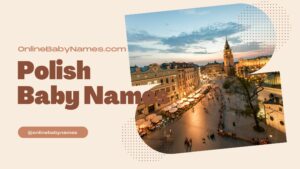
Hungarian baby names, steeped in tradition and history, have gained popularity in recent years. As a country rich in culture and heritage, Hungary has a treasure trove of unique and meaningful names that parents around the world are starting to appreciate. What makes these names so special is their connection to the Hungarian language and culture, which date back over a thousand years.
As I delve into the world of Hungarian baby names, you’ll find that many carry a deep sense of history. In Hungary, it’s customary for families to choose names that reflect their lineage and beliefs. You’ll often find names that are inspired by nature, powerful emotions, and even religious figures. What’s more, Hungarian names follow a distinct pattern, with family names usually coming first, followed by the given name.
When exploring Hungarian baby names, you’ll notice a unique blend of traditional and modern influences. From names that evoke memories of Hungary’s storied past to those that resonate with contemporary parents, there’s something for everyone. Throughout this article, I’ll introduce you to beloved Hungarian names, their meanings, and the captivating stories behind them. So, whether you’re expecting a little one or simply curious about these beautiful names, get ready to immerse yourself in a world of extraordinary names and rich cultural significance.
The Rich History Behind Hungarian Baby Names
Hungarian baby names have a long and fascinating history. Derived from the Uralic language family, Hungarian is a unique and distinctive language that sets it apart from its neighboring countries, giving it a cultural and linguistic identity all its own. Hungarian baby names reflect this individuality, often carrying meaning and symbolism deep-rooted in the country’s rich past.
When it comes to Hungarian baby names, the Hungarian Academy of Sciences plays a crucial role in approving and maintaining a list of acceptable names. They ensure that names have a historical precedent or a cultural significance in Hungarian society. This commitment to preserving tradition is something that sets Hungarian baby names apart from names in other parts of the world.
Characters from Hungarian history and mythology significantly influence these names. For instance, you’ll find baby names reflecting
- Ancient Hungarian tribes
- Historical figures
- National heroes
- Mythological creatures
Taking inspiration from these sources, parents can choose a name with a sense of history and pride in their cultural heritage.
Over the centuries, Hungarian baby names have also been influenced by Christianity. If you look closely, you’ll find many names with Christian origins, such as Mihály (Michael) and Anna. The Ottoman era and the Austro-Hungarian Empire also left their mark on Hungarian baby names, with names like Mustafa for boys and Heléna or Mária for girls becoming more popular.
An exciting characteristic of Hungarian baby names is the use of surnames as given names. It’s not uncommon for parents to name their children after their own surname or an ancestor’s, giving a nod to their family history. This loving tribute to one’s roots highlights the importance of lineage and ancestry in the Hungarian culture.
One fascinating practice within the Hungarian naming culture is the inversion of surnames and given names – a complete reversal of the standard name order found in most Western-European cultures. This offers a unique perspective on the importance placed on family names and their historical significance.
In summary, the rich history behind Hungarian baby names makes them a fascinating and meaningful choice for parents. They reflect a proud history, unique cultural identity, deep family roots, and an appreciation for both the past and the present. So, the next time you’re browsing through a list of Hungarian baby names, take a moment to appreciate the stories they hold, the traditions they preserve, and the vibrant culture they live within.
Choosing a Traditional Hungarian Name
When it comes to selecting a traditional Hungarian name for your little one, there are several factors you may want to consider. Hungarian names often hold deeper meanings and historical significance, which might help you connect with your cultural roots or share a meaningful story with your child as they grow older.
Name origins: Hungarian names can be categorized into three main groups:
- Names of Magyar origin – These are traditional and unique to Hungary, such as Árpád, Csilla, or Zsolt. They often relate to nature or historical figures in Hungarian culture and mythology.
- Names of Old Hungarian origin – These names are derived from ancient Hungarian tribes or historical figures, like Attila, Bálint, or Zita.
- Names of foreign origin – Many Hungarian names have been adapted from other languages and cultures, like Mária (from Mary), József (from Joseph), or Béla (from Slavic Velyamin).
Name days: In Hungary, it’s a popular custom to celebrate name days. Each day of the year is associated with specific names, often with a religious or historical connection. You might want to choose a name that corresponds with a particular day, like Károly on November 4th, or Szilvia on November 13th. A quick online search will help you find the name day for the names you’re considering.
Popularity: Some parents prefer to choose names that are currently popular, while others might want to find something unique and uncommon. Check Hungarian statistics or ask around to gauge the popularity of a certain name. But remember, your choice should ultimately reflect your personal preference and connection to the name.
Here are a few popular traditional Hungarian names to consider:
| Boys’ Names | Girls’ Names |
|---|---|
| András | Anna |
| Bence | Boglárka |
| Máté | Eszter |
| Tamás | Fanni |
| Zoltán | Ildikó |
Meanings and symbolism: Hungarian names often carry special meanings and stories. For instance, Imre means “strength,” Katalin signifies “pure,” and László stands for “glorious ruler.” You can search for names based on their meanings and select one that resonates with you or carries a message you’d like to impart upon your child.
Pronunciation and spelling: Lastly, if you live outside Hungary or plan on raising your child in a multicultural environment, you might want to consider the ease of pronunciation and spelling for your chosen name. This can help your child feel more confident when introducing themselves and save them from constantly correcting the pronunciation or spelling of their name.
Remember, choosing a traditional Hungarian name for your baby is a personal decision, and there’s no right or wrong choice. Take your time, explore various options, and find the one that best fits your preferences and vision for your child’s future.
Top Hungarian Names for Boys
Selecting a name for your baby boy can be one of the most exciting yet overwhelming tasks, and Hungarian names are definitely worth considering. Hungarian names have a rich history and unique patterns, which makes them very distinct. I’m thrilled to introduce you to some of the top Hungarian names for boys, and I hope you find the perfect name for your little one.
Máté is an incredibly popular Hungarian name, originating from the Hebrew name Matthew which means “gift of God.” With its strong meaning and growing popularity, Máté can be an excellent choice.
Bence is another popular choice for boys in Hungary. It derives from the Latin name Vincent, meaning “conquering” or “to conquer.” Bence is perfect for parents looking for a strong, powerful name for their son.
Let’s take a look at some more notable Hungarian names for boys:
- Ádám: Similar to the English name Adam, which means “man” or “earth.”
- Balázs: Hungarian form of Blaise, meaning “to stammer” or “lisp.”
- Dániel: Hungarian version of Daniel, meaning “God is my judge.”
- István: Derived from the Greek name Stephanos, meaning “crown” or “wreath.”
- Miklós: Hungarian form of Nicholas, meaning “victory of the people.”
As we explore more unique names, it’s essential to understand that Hungarian names often have diminutive forms, creating shorter and more affectionate versions of the name. For example:
- Ádám can be shortened to Ádi or Ádó
- Bence can be shortened to Benci or Bencus
- Dániel can be shortened to Dani or Danye
Now, let’s see some remarkable yet slightly uncommon Hungarian names for boys:
- Róbert: Hungarian form of Robert, meaning “bright fame” or “glorious.”
- Levente: Derived from the ancient Hungarian title for a warrior or champion.
- Zsolt: English equivalent of Childebert, meaning “renowned warrior.”
- Gábor: Hungarian variation of Gabriel, meaning “strength of God.”
The table below provides a summary and meaning for each of the top Hungarian names for boys mentioned above:
| Name | Meaning |
|---|---|
| Máté | Gift of God |
| Bence | Conquering, to conquer |
| Ádám | Man, earth |
| Balázs | To stammer, lisp |
| Dániel | God is my judge |
| István | Crown, wreath |
| Miklós | Victory of the people |
| Róbert | Bright fame, glorious |
| Levente | Warrior, champion |
| Zsolt | Renowned warrior |
| Gábor | Strength of God |
In conclusion, Hungarian names for boys offer a beautiful array of choices with strong meanings and unique characteristics. Whether you opt for a popular name like Máté or Bence or an uncommon name like Levente or Zsolt, I’m sure you’ll find the perfect name to celebrate your baby boy’s heritage and personality.
Top Hungarian Names for Girls
Hungarian baby names are rich in history and culture, carrying a distinct charm that sets them apart. As someone who loves exploring unique names, I’m excited to share the top Hungarian names for girls. Delve into these fascinating choices and find a standout name that suits your baby girl perfectly.
Zsófia: This popular Hungarian name is the equivalent of “Sophia” in English. It means “wisdom” and is perfect for parents hoping to bestow an air of intelligence upon their little one.
Hanna: A delightful name that rolls off the tongue, Hanna means “grace” and “favor.” It’s a popular choice in Hungary due to its feminine charm and timeless quality.
Rebeka: This Hungarian form of “Rebecca” means “to snare” or “to bind,” suggesting loyalty and dedication. A lovely and enduring choice, Rebeka is ideal for those seeking something both elegant and substantial.
Some other captivating Hungarian girl names include:
- Katalin: Hungarian variation of “Catherine,” meaning “pure.”
- Eszter: The Hungarian form of “Esther,” meaning “star.”
- Lili: A Hungarian nickname for “Elizabeth,” meaning “my God is abundance.”
- Tímea: A name created by a Hungarian author, derived from “timaios” which means “honorable.”
To offer you an even broader perspective on Hungarian names for girls, the following table showcases the top 10 Hungarian names and their meanings.
| Name | Meaning |
|---|---|
| Zsófia | Wisdom |
| Hanna | Grace, favor |
| Rebeka | To snare, to bind |
| Katalin | Pure |
| Eszter | Star |
| Lili | My God is abundance |
| Tímea | Honorable |
| Maja | Great, mother |
| Nikolett | People’s victory |
| Adrienn | From Adria, related to the sea or water (a form of “Adrienne” with a Hungarian twist) |
Jumping into the history and culture behind Hungarian names provides a world of beautiful options for your baby girl. Choose from the timeless elegance of Zsófia or Rebeka, or opt for more modern and unique names like Tímea and Nikolett. Whichever Hungarian name you select, your baby girl will undoubtedly carry a piece of Hungary’s rich heritage and stand out from the crowd.
Unique Hungarian Baby Names You’ll Love
When it comes to naming your baby, it’s essential to choose a name that not only sounds beautiful, but also has an equally lovely meaning. Hungarian baby names provide an exquisite blend of cultural and historical touch, along with some fresh and modern twists. In this section, I’m going to introduce you to some unique Hungarian baby names that you’ll undoubtedly love.
Hungary has a rich and diverse history where various cultures and influences have molded its language. As a result, you’ll find Hungarian baby names have their roots not only in the original Magyar tongue, but also in Slavic, German, Turkish and Latin languages. This blend makes Hungarian names uniquely charming and distinct.
Let’s dive into some of these unique Hungarian baby names that stand out for their charm and meaning.
Boys’ Names:
- Ákos – Meaning “eagle”, a great option for a strong yet graceful name with a natural touch.
- Bence – A popular Hungarian baby name that means “blessed” or “conqueror”. It combines strength and spiritual overtones.
- Levente – Derived from the ancient Hungarian word Levente, it means “lion” – symbolizing courage and royalty.
- Máté – A version of the name Matthew, meaning “gift of God.” It’s a timeless choice that never goes out of style.
- Zsombor – An ancient Hungarian name that means “buzzing” or “humming”, representing life and vitality.
Girls’ Names:
- Dalma – A beautiful and modern Hungarian name meaning “peace of the world,” ideal for parents who are looking for a unique and harmonious name.
- Fanni – This lyrical name means “free one” or “liberated one”, perfect for parents hoping to inspire an independent spirit in their daughter.
- Katalin – Derived from the name Katherine, it means “pure” and is a classy, elegant choice for a baby girl.
- Réka – This enchanting name means “pearl” or “vision” and is lovely for parents who desire a name that exudes a blend of grace and mystery.
- Zselyke – An unusual yet enchanting name that means “willow”, perfect for fans of nature-inspired names reminiscent of grace and beauty.
The Hungarian language’s charm and diversity allow for some truly captivating name choices for your little one. By selecting one of these unique Hungarian baby names, you’ll be providing your child with a name that is both deeply meaningful and culturally rich. So, consider these names, and perhaps one of them will be just right for your bundle of joy.
Hungarian Name-Day Celebrations
When examining Hungarian baby names, it’s essential to discuss Hungarian Name-Day Celebrations. In Hungary, name-days are a significant aspect of the culture, and almost as important as birthdays. To better understand this unique custom, let’s delve into the key features of Hungarian name-day celebrations.
In Hungary, each day of the year has a designated name associated with it from the Hungarian name calendar. Family and friends celebrate the name-day of an individual, honoring the person whose given name corresponds to the designated name for that day. Typically, the honoree receives small gifts or flowers and enjoys a celebratory gathering with loved ones.
The origin of name-days traces back to the practice of naming children after Catholic saints. Today, however, many popular Hungarian names aren’t necessarily associated with saints. The name-day calendar is continually updated to include modern names and accommodate changing preferences in the Hungarian society. The calendar revision occurs in every 5-year period, and non-religious names are added with current name-days.
Traditional practices during name-day celebrations include social gatherings and feasts with family and friends. Here are some highlights:
- The honoree receives symbolic, small gifts such as chocolate, books, or flowers.
- Family and friends often visit the honoree’s home to express well-wishes.
- Food and desserts, like a cake named “dobozi” or “rétes”, a strudel-style pastry, are often served.
Acknowledging someone’s name-day is an important aspect of Hungarian culture:
- Cable television programs and newspapers publish daily name-day listings.
- Name-Day notification for close friends and family is supported by specific mobile applications.
- Failure to congratulate someone on their name-day might be considered impolite.
It’s crucial to bear in mind that some names in Hungary can have multiple name-days due to variations and historical factors. On the other hand, some days have more than one name assigned on the name-day calendar. In such cases, individuals usually celebrate on the most traditional or popular day for their specific name.
In conclusion, Hungarian name-day celebrations offer a unique insight into the Hungarian society, culture, and traditions. Incorporating these customs adds to the significance and relevance of Hungarian baby names and their importance in the daily lives of Hungarians.
The Importance of Family Name in Hungary
When discussing Hungarian baby names, it’s crucial to understand the importance of family names in Hungary. Family names hold a special significance in Hungarian culture and are often influenced by history, traditions, and personal connections.
In Hungary, family names come first, followed by the given name. This order showcases the significance that Hungarian people place on their family connections. Moreover, when naming their children, parents typically consider the impact of the name on the child’s life and sense of belonging within the family.
There are clear distinctions between traditional Hungarian names and foreign names that have been adapted to Hungarian culture. These differences not only lie in pronunciation, but also in meaning and root origins. Here are some key aspects of Hungarian family names:
- Traditional Hungarian names: Many of these names are derived from words rooted in the ancient Hungarian language, Magyar. Examples of traditional names include Kovács (Smith), Szabó (Tailor), and Horváth (Croatian).
- Adapted foreign names: These names typically come from Slavic, German, or other European roots. For example, the name Péter is adapted from the English “Peter” and has a biblical origin.
Additionally, Hungarian last names can also reflect the family’s profession or geographic region. Some common examples of these attributes are:
- Profession-based names: Names such as Halász (Fisherman) or Varga (Shoemaker) indicate the family’s trade or profession.
- Geographical names: Names like Dunai (from the Danube River) or Erdősi (from the forest) suggest the family’s geographical origin or where they lived.
Another important aspect of Hungarian baby names is the use of gender-specific variations. Male given names typically end in a consonant, while female names often end with the letter ‘a,’ such as:
- Male names: Miklós, Zoltán, Gábor
- Female names: Mária, Katalin, Éva
In conclusion, Hungarian baby names reflect the country’s rich history, traditions, and culture. As a result, understanding the importance of family names in Hungary can provide valuable insights into naming trends, regional influences, and even familial professions. Furthermore, considering the significance of naming conventions can help you better appreciate the unique aspects of Hungarian culture, as well as their powerful connection to ancestry and family identity.
Trending Hungarian Names in the US
When it comes to choosing names for a baby, parents often look for inspiration from various cultures. I’ve noticed that Hungarian baby names have increasingly gained popularity in the United States. Let’s explore some of the trending Hungarian names in the US at the moment.
Boldog, which means happy or fortunate, is a popular choice for both boys and girls. It’s unique and has a positive meaning that parents find appealing. Another gender-neutral name gaining popularity is Marci, which is a shortened version of the Hungarian name Márkus (Mark) or Márton (Martin). It’s a fresh and modern take on classic names.
For boys, the name Bence has been popping up more frequently within recent years. Stemming from the Latin name Vincent, Bence means victorious or conqueror. It’s a strong and confident name that many parents have been drawn to. In the same vein, the name Attila appears to have been making a comeback. Though associated with a ruthless historical figure, Attila carries a connotation of leadership and strength.
Hungarian names for girls are equally captivating. Eszter has become a trendy name for girls in the US, and it’s a Hungarian twist on the Biblical name Esther. Eszter tells a story of courage and resilience, making it a striking name for a baby girl. Additionally, the name Zsófia has found its place among popular Hungarian girl names. It’s an elegant take on the name Sophia, meaning wisdom.
International names often gain popularity due to the rise of mixed heritage families or simply a growing fondness for unique and diverse names. It’s essential to ensure that these names are given accurately to respect their cultural origin.
Here’s a quick rundown of some popular Hungarian baby names in the US:
| Name | Meaning | Gender |
|---|---|---|
| Boldog | happy, fortunate | Unisex |
| Marci | derived from Márkus/Márton | Unisex |
| Bence | victorious, conqueror | Male |
| Attila | father-like, leader | Male |
| Eszter | star, Biblical Esther | Female |
| Zsófia | wisdom, a variation of Sophia | Female |
In conclusion, Hungarian baby names have increasingly become popular choices for parents in the United States who are seeking unique and meaningful names for their children. These names offer a glimpse into the rich culture and history of Hungary, adding a special touch to the naming process.
Hungarian Nicknames and Diminutives
When it comes to Hungarian baby names, nicknames and diminutives play a significant role in the naming culture. These affectionate forms of names can be derived from the first or last name of an individual and primarily serve to express endearment or familiarity. I’ll shed some light on the most popular Hungarian nicknames, as well as discuss how diminutives are formed in this rich naming tradition.
Commonly, Hungarian nicknames can be formed by shortening the original name or creating a completely new variant. For instance, the Hungarian name Gábor can shorten to Gabi, while Erzsébet can become Bözsi. Other names that have popular shortened versions include:
- Andras -> Bandi
- István -> Pisti
- Katalin -> Kati
- Mátyás -> Máté
In the Hungarian language, diminutives are created by adding certain suffixes to the base form of the name. The -ka suffix is one of the common options for creating a diminutive version of a given name. For example:
- Ilona -> Ilonka
- Melinda -> Melindka
- Tünde -> Tündike
Other widely-used suffixes include -i and -csi:
- Barnabas -> Barni
- Klement -> Klemenci
Apart from these suffixes, the Hungarian language offers an even wider variety of options for creating affectionate and unique diminutives. Some other suffixes are -ó, -us, and -csa. It’s important to note that the use of one suffix over another may vary depending on the name’s syllable structure and ending.
As a first-time parent, friend, or family member, it might be helpful to familiarize yourself with the common nicknames and diminutive forms for Hungarian baby names. This way, you’ll be able to choose the perfect name or affectionate variant for your little one or a loved one.
In summary, Hungarian nicknames and diminutives enrich the naming culture, creating unique and personalized variants of baby names. By understanding the most popular forms and the ways in which diminutives are formed, you’re well-equipped to choose and use a name that embraces the beauty of the Hungarian language.
Putting It All Together: Picking the Perfect Name
Choosing the ideal Hungarian baby name may seem daunting at first, but I’m here to help. I’ve compiled a few essential factors to consider, as well as some tips to help you make an informed decision.
1. Family Tradition and Heritage
First and foremost, reflect on your family’s heritage and traditions. Picking a name that honors your Hungarian roots can give your child a strong connection to their ancestry. You might want to:
- Consult with older family members
- Research popular names from your family’s region of origin
- Choose a name with a significant meaning or history related to your family
2. Understanding Name Meanings
Many Hungarian names have unique and meaningful origins, which could be an essential factor when selecting your baby’s name. Take the time to research different names and their meanings—this could make your baby’s name all the more special.
3. Name Popularity
While popular names may be prevalent for a reason, it’s essential to weigh their popularity against your desire for a unique and distinctive name for your child. To give you an idea of Hungarian name trends, here are the top 5 popular names for boys and girls according to recent statistics:
| Gender | 1st | 2nd | 3rd | 4th | 5th |
|---|---|---|---|---|---|
| Boys | Bence | Máté | Levente | Ádám | Dániel |
| Girls | Hanna | Anna | Zoé | Léna | Emma |
4. Pronunciation and Spellings
Being familiar with how the name is pronounced and spelled is important, especially if you live outside Hungary or have connections to the international community. You might want to choose a name that is easily pronounced and spelled in English or other languages.
5. Flow with the Last Name
Lastly, make sure the chosen name flows well with your child’s last name. Combining a first name with syllable counts different from the last name, or a name that starts with a different letter, often results in a smooth-sounding full name.
In summary, selecting the ideal Hungarian baby name involves considering your family heritage, understanding name meanings, weighing popularity, and ensuring the name is easily pronounced and spelled. By taking these factors into account, you’ll be well on your way to picking a meaningful and cherished name for your child.















